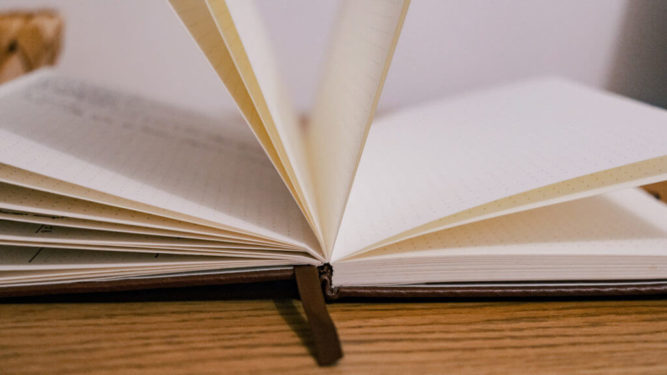How to help your child with their GCSEs – even when you don’t know anything about the subject!
In this article, experienced teacher and tutor, Chris, shares his top tips to supporting GCSE students at home.
Every parent wants to see their children achieve the best that they can, and now that your child is in their GCSE years, you want to help them as much as you can. You’re making sure they eat healthily, you’ve made a revision timetable with them, you’ve set up the best quiet area you can manage in a family home and you’re even doing everything you can to make sure they sleep well. But how can you help them with subjects that you haven’t even thought about since you were at school yourself? It can be daunting, trying to help someone with a subject when they know more about it than you do, but this guide will hopefully give you a few tips to help your child improve their chances at success.
Knowing, Understanding and Applying
GCSEs (and nearly every other exam for that matter) test a combination of knowledge, understanding and application of facts. This may sound like it’s going to be even harder to help them – how can you explain how the facts of river flow speed and erosion apply to the formation of oxbow lakes when you can’t even remember exactly what erosion is? Things are not as bad as that though. The trick is to remember that YOU are not the one who needs to teach them how to do this, that’s the job of their teachers (and tutors). YOUR job is to give your child the opportunity to practise their understanding and application skills.
Knowledge
Learning the basic facts is the key starting point to any subject. Children may have one (or more) of many different strategies for this. Two common methods are reading or copying facts. These do not work well. They can be great for putting the knowledge into their short-term memory, and when you ask them about it straight afterwards, they’ll remember a lot. But it does not go into their long-term memory, which is where it needs to be. Far, far better is writing facts in their own words. Writing them onto flash cards, or into an organised file of their own is great for referring back to. If your child likes visuals, encourage them to make a mind map with little pictures relevant to the facts (different colours can help too) – maybe they could write about the three poisons of Buddhism in poison bottles, and draw the animal representing each one on the label.
The next step is repetition. Learning the facts once is not enough – they need to be repeated. If they are written on flash cards or in a book or folder, make sure you get them out to quickly ask your child facts. If they’ve made a mind map, stick it on a door/wall/cupboard/anything that will be seen regularly. Then ask them questions from it. If they’re on flash cards, you could stick each card on a wall. If they get the fact correct when you ask them, they can move the card to the right, leaving the facts they’re less confident about over to the left, letting you both know what they need to be focusing on more. You don’t need to personally know the facts – they’re written down for you!
The next two sections require a lot more discussion. Every teenager is different, and no-one knows your child as well as you do, so you need to pick the time and place that works best for you. Personally, I talk to my daughter a lot around the dinner table. My son is less confident and doesn’t like talking about his work around the others, so we talk in the car on the way to football. (He is also trapped in the car while I’m driving and has nowhere to escape!)
Understanding
To show understanding of facts, they need to be able to explain what they mean, maybe give some examples or explain why certain things are wrong. The big questions you can ask here are, “Why…?” and, “How…?” You don’t need to know the answers yourself – most of the time you won’t. I definitely haven’t known the answers to a lot of the questions I’ve asked my children about their GCSE PE (a subject I avoided as much as possible when I was at school). What’s important is getting them to talk about the facts rather than just repeat the facts. If they can’t go into detailed explanation, then they need to find out more, or you can look up the information together. The trick is simply to be interested (or pretend to be) and ask for more information about everything. Following up with further questions helps them put all of their learning into context.
For example, they may know that the Magna Carta was singed by King John in 1215. “Why was that important?” Hopefully they can explain that this set into law the concept that the King was not above the law and there were limits to the extent of the monarchy’s power. “Why did he sign it then, if it limited his power?” They can explain that the barons he had upset or marginalised forced him into it. “Who were the barons?” And so on.
Application
Applying knowledge means being able to explain how it is relevant in different situations. Much like understanding and explaining, helping your child apply their knowledge simply requires conversations. Think about situations or examples from real life that might be related to the topic. For example, you may have just been discussing how palisade cells contain a lot of chloroplasts, because they are important for photosynthesis, and they are arranged at the top of the leaves. This would be a great time to ask “What about a cactus? They don’t have leaves.” This question makes your child really think about why the palisade cells are at the top of the leaf (to get as much sunlight as needed, which isn’t important in habitats where there’s plenty of sunshine) and also other features of leaves (excess water departs through the stomata, whereas the cactus will want to keep as much water as possible).
The great thing about applying knowledge to real life, is that it can happen at any time. You may not think of the cactus example when your child is revising, but you spot one when you’re walking round a garden centre. Or watching something on TV and see a cactus. Ask them about it! News stories can often relate to subjects they are studying; when out walking or driving you can see something relating to geography or science; documentaries can throw up all kinds of questions.
Some example questions:
“Is that a bit like…?”
“Which one do you think is more important out of…?”
“How come this doesn’t happen…?”
“Why does this happen when…?”
In summary, helping your child learn facts is the only thing that might need you to look up anything (and that should just be reading their notes that they’ve made anyway). After that, all you need to do is talk about their subject and ask questions. Lots of questions. Remember that YOU don’t need to know the answers to test them; THEY are the ones meant to be working out the answers to tell you!



Start the discussion!